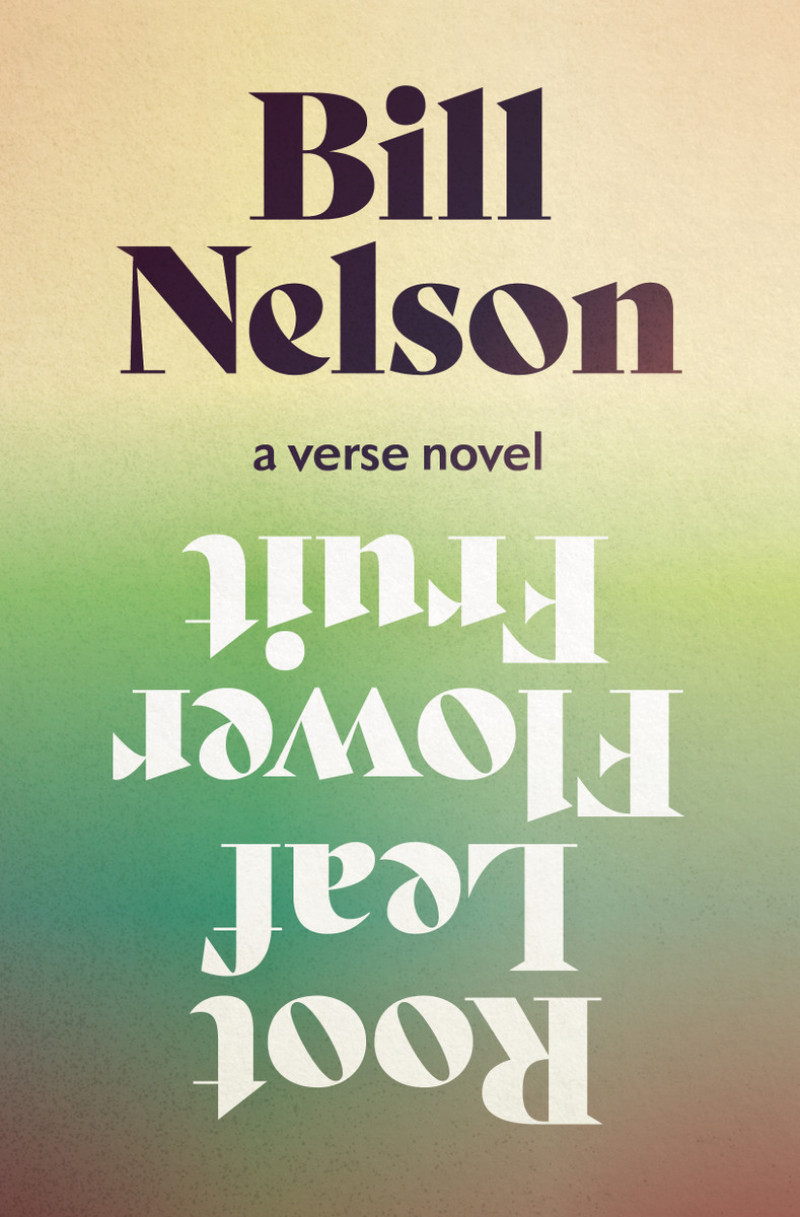Root Leaf Flower Fruit
Written by: Bill Nelson
Te Herenga Waka University Press
Reviewed by: Margaret Austin
Subtitled A Verse Novel, this creative work suggests both forms. If you think ‘verse’ means rhyme, you’ll be disappointed. That said, there is rhythm and imagery aplenty. If you imagine ‘novel’ (a fictitious prose narrative of book length), you’ll be closer to the mark.
At over 100 pages and consisting of a story with a bit of a plot, albeit rambling, Root Leaf Flower Fruit relates a grandson’s experience of his grandmother’s physical and mental deterioration, a chilling parallel of his own. “Designed to look like an accident. / But no memory of what happened. / I might as well be someone else.” is how he describes a head injury due to a fall off his bike in the opening section Root. There are roots throughout, plus trees, mud, and paddocks: images that reflect and magnify the writer’s preoccupation with land as it used to be.
Inevitable change is foreshadowed. Our writer is studying how science can help predict climate change, but all is interrupted by his grandmother’s subsequent stroke and the decision to sell her farm. It must be tidied up first, however, and our man is landed with the job.
The second section Leaf recounts the discovery of his grandmother’s diaries – and that they are, intriguingly, written in the third person. From here, the narrative gathers pace, as efforts to clear the property, clean the house, and rid it of what can be judged rubbish alternate with accounts from the diaries – redolent with descriptions of farm life, experiences with WWOOFers, and some recalling scenes more troubling.
“The first viewing is a regional manager at Landcorp.” The penultimate section Flower sets the scene for what, inevitably, follows. “I pack everything into boxes and call the Salvation Army”. The language of auctions fills the air: bidding, reserve, last chance. The gavel falls – on a sale, and the end of an era.
Fruit, a lengthy interior monologue, recalling Grandmother’s life and her farewell to it, concludes a chronicle of joy, duty, necessity, and lament.
View more reviews:
« Click here


